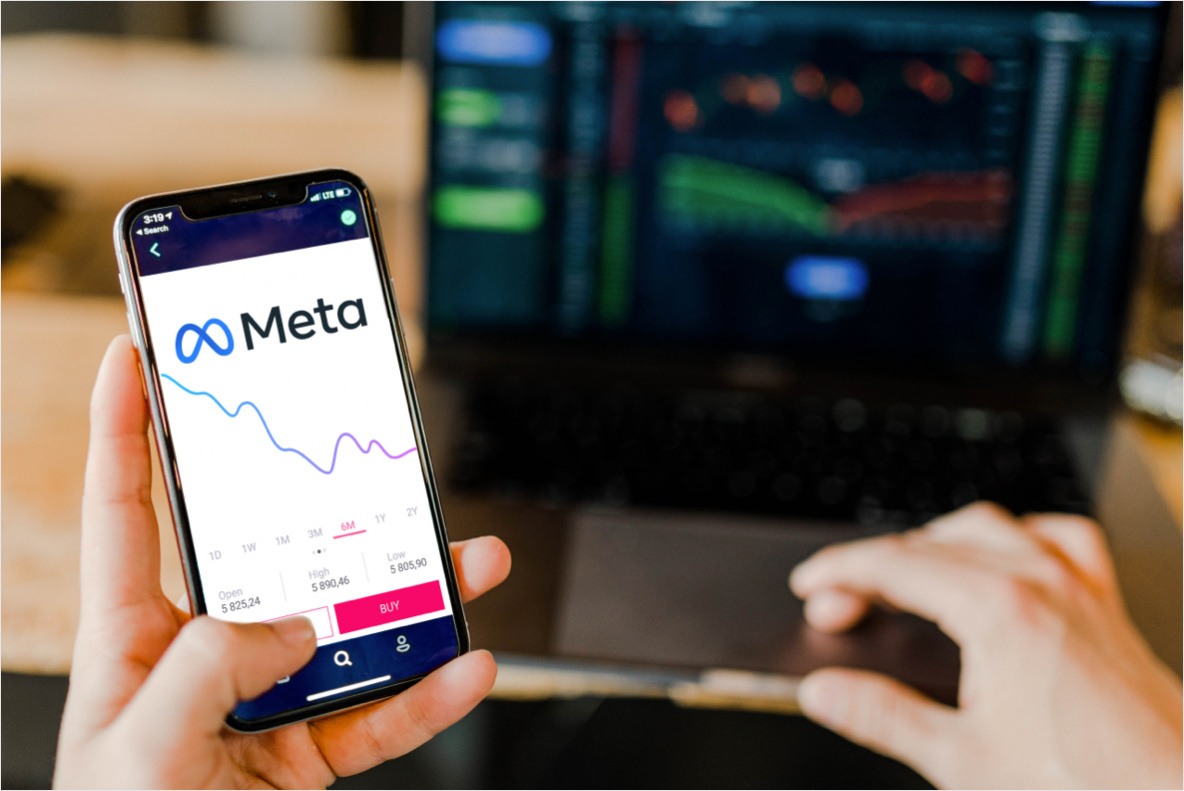With the publication of the latest financial figures, the shares of Facebook's Meta Group, which also includes Instagram and WhatsApp, dropped by almost 25% within one day. For the first time in many years, Facebook founder, Mark Zuckerberg, no longer appears among the 10 richest people in the world mentioned on the Forbes list (published on 07/02/2022). The surprising turn in Facebook's success story shows how much the world of online marketing is changing, and that some apparent rules do not apply anymore. But what does this shock mean for marketing professionals and the marketing industry?
Facebook loses ground against other big players
Just a few days before Facebook's numbers were released, the world of the tech giants seemed fine: Microsoft increased its revenue and profit, Apple announced strong sales during the Christmas period, and Alphabet Inc. (Google) once again achieved historic growth in 2021, doubling its profit to about 67 billion euros. Then came the Facebook release with the -25% market capitalization shock. It's not just profits that disappointed - what's alarming investors are stagnating user numbers and dropping downloads of the meta group's app.
Is social media and online advertising in a crisis?
The news immediately developed a pull effect on other social media companies like Pinterest and Snapchat. Both companies lost 10% and 21% share values respectively on the day of Facebook’s announcement. Both responded the following day with own news: Snapchat surprised their investors by reporting first profits, while Pinterest surprised with topping forecasts and accelerated growth. Social media is, therefore, not in crisis. It's Meta Group’s social media offerings like Facebook, Instagram and WhatsApp that are.
What went wrong, Facebook?
To put it in the words of Mark Zuckerberg himself, "TikTok represents an unprecedented level of competition."
The social network TikTok is obviously stealing the show of some established social networks like Facebook and Instagram with its popular short videos. But not only because of its videos, but also thanks to its organic algorithm, use of trending music, and user experience, TikTok is beating the other networks that are more driven by paid content. For a while now, it has been impossible for creators and brands to achieve organic reach and new followers on Instagram and Facebook. They all had to invest in paid ads. TikTok, on the other hand, focuses on its users and their content, not on paid posts. A possible reason why Generation Z is prominent on the app.
In addition, Facebook's dev teams are falling behind. Design and features are outdated. Facebook struggles to control the spread of fake news and the hate speech, which causes users to distance themselves further from the network. In Europe, Facebook has been criticized for its handling of user data and is even considering withdrawing from the market.
What does the future of Facebook, Instagram and social media marketing look like?
The trend towards short videos is unbroken. With Reels on Instagram (short videos) launched in 2020, the app has responded to TikTok, which seemed to work so far. Also, the organic reach of videos seems to scale higher than that of images. Still, it's becoming increasingly clear: no social media platform has gained a long-term monopolistic advantage like Google has for search engines. Instead, the social media market is fragmenting. Brands therefore have to be present on multiple platforms and channels simultaneously to successfully reach their customers. This requires an increased management effort to orchestrate marketing campaigns, coupled with a sophisticated strategy to continuously test different platforms, collect relevant data, and derive meaningful analyses to drive decisions and allocate budgets efficiently.
What marketers must do now
One thing is clear for our teams: the focus is set on end users. Marketers must understand the end customer and be able to accompany them through the changing times across multiple platforms. Due to the fragmentation of social media platforms, existing social media strategies need to be revised and further developed towards multi-platform approaches. By focusing on numbers and analytics, marketers can test different approaches, channels and fresh ideas and measure their efficiency and success. This way, marketers can stay ahead of the wave, constantly pick up on new trends and thus design and implement successful multi-platform strategies.



